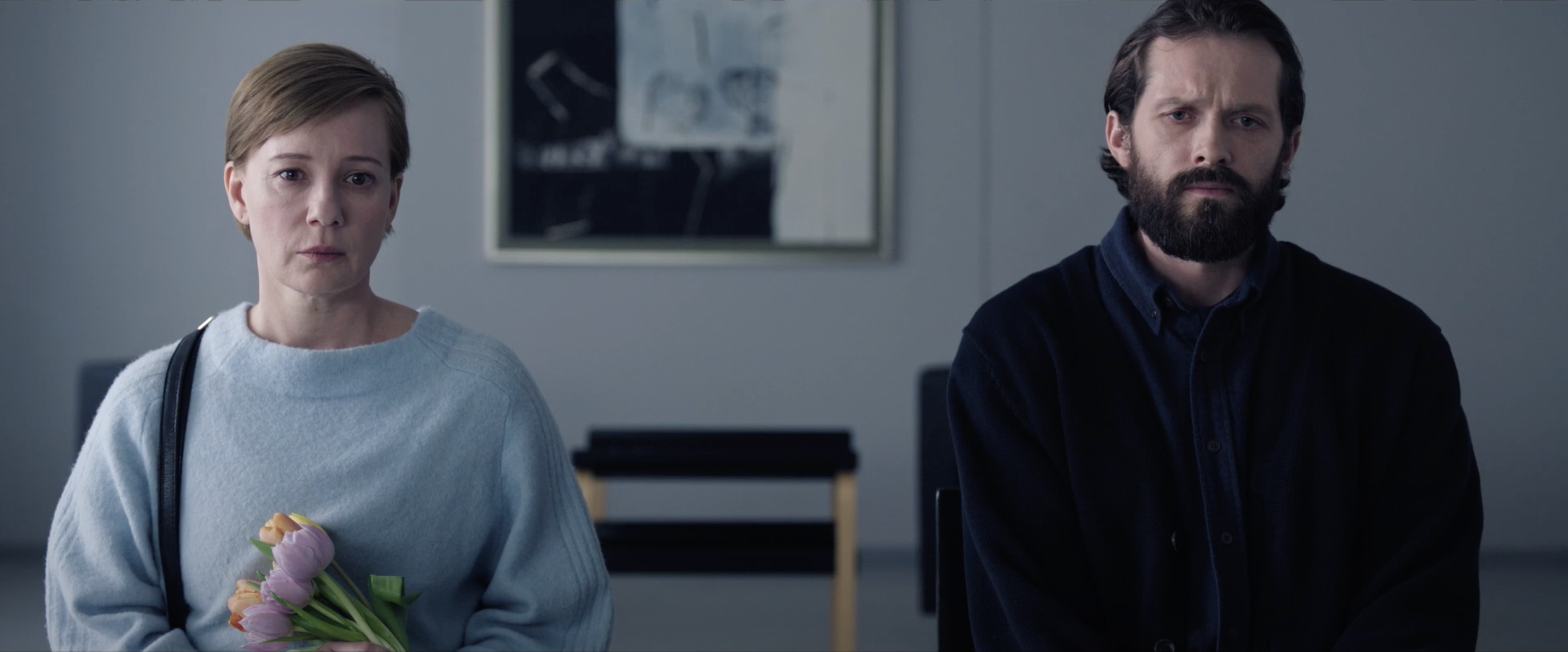The film Quiet Life is based on true events, recounting the story of a Russian family fleeing repression. Settled in Sweden, their asylum application is rejected and they are threatened with having to go back to Russia, where they are unsafe. Under the pressure of this news, their youngest daughter, Katja, suddenly falls into a coma.
Every year in Sweden, there are dozens of cases of resignation syndrome like the one this child is suffering from. It is a serious and sensitive subject that is revealed to us, discussing the story of children who have asked for nothing more than to live with dignity, without being in constant fear. Nevertheless, the film presents this to us with a disconcerting coldness and distance. The sets are practically empty, the props are all lined up with the utmost precision, the actors’ movements are drawn like puppets, the costumes are immaculate, the lighting is naturalistic, the emotions are restrained… This makes the rare moments in the film that seem sincere all the more touching.

I left the theater without knowing whether I liked the film or not. Even several days later, I still don’t know if I liked it. But ultimately, I don’t think it matters. For the most part of the film, we don’t really know how to feel, we’re almost embarrassed by all this shyness, we almost want to shake up the characters. Despite these mixed emotions, it’s a film that leaves a lasting impression and is not easily forgotten. After all, I realize that this modesty had something touching about it.
The cinematography overall perfectly matches the movie theme, with exemplary sobriety while retaining its charm and personality. The camera movements are unobtrusive, the lighting is cold, soft, almost shadowless, but does not neglect contrast.
The Silver Camera 300 was awarded to director of photography Olympia Mytilinaiou, GSC for this film, at the 46th edition of the Manaki Brothers Festival.
It was a wonderful discovery, with a surprising and unusual approach to this kind of subject matter. We gradually come to understand that the subject is serious enough in itself without the need to add anything on top of it, as we often see in movies.



